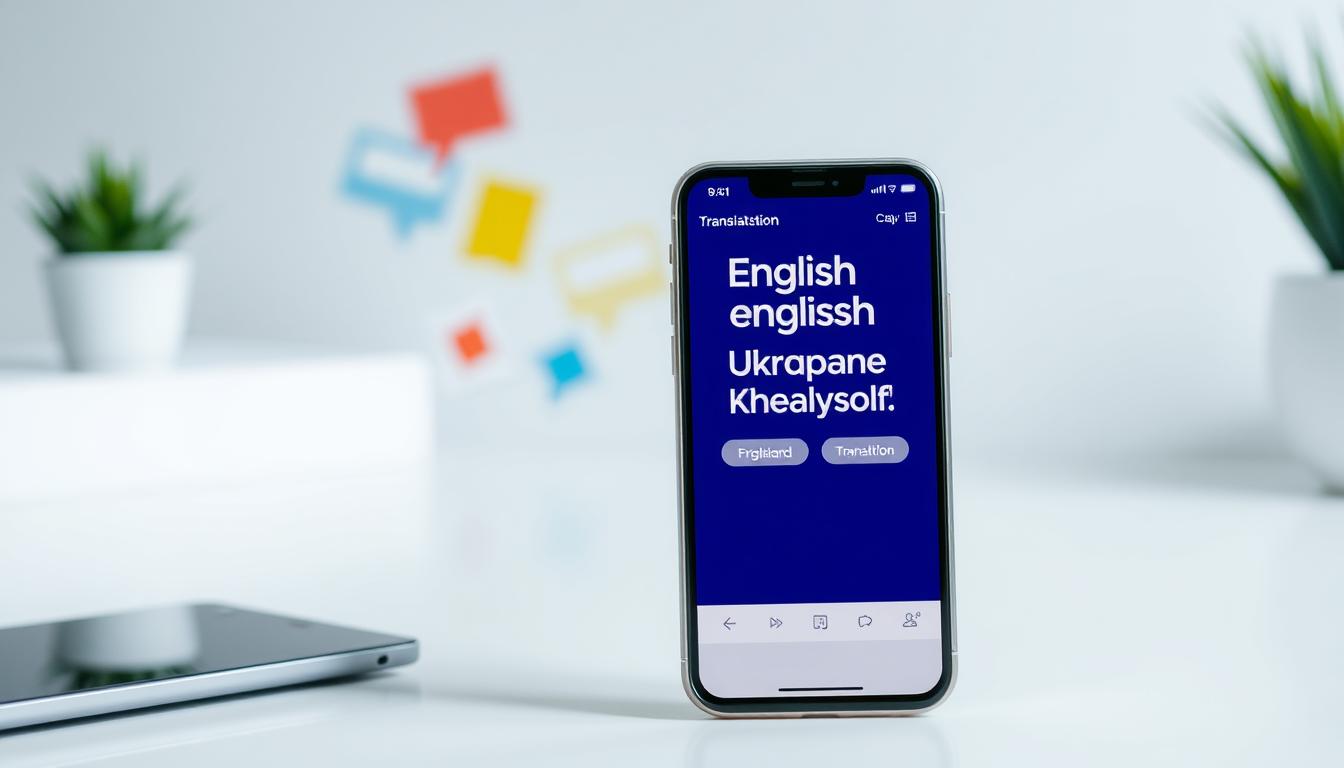Anglo Saxon Translator: Discover Old English Online
Did you know Aelfric, a translator from the 11th century, used “neorxnawang” to describe the Garden of Eden? This word has many meanings, from “Asgard” to “a garden of perpetual change.” It shows the complexity of Old English and the challenges translators face today. The Anglo Saxon Translator is a tool that helps us understand this ancient language, connecting the past to the present.

Travel back in time to the 5th to 11th centuries when Old English was spoken in England and Scotland. Learn about its four main dialects and how Germanic, Latin, and Norse languages influenced it. See how the Anglo Saxon Translator tackles Old English’s unique features, like “þ” (thorn) and “ð” (eth).Today, with AI-powered tools like BiRead, the translation process becomes even more intuitive, providing tailored translations for webpages and making it easier to grasp complex linguistic features across 130+ languages.
Unveiling the Mysteries of Old English
The old english language, also known as Anglo-Saxon, was key in keeping the early medieval period’s oral tradition alive in England and southern Scotland. It came from Germanic dialects brought by Anglo-Saxon settlers in the 5th century. Scholars and fans find its journey from past to present both fascinating and enlightening. For those interested in uncovering linguistic roots or enhancing their language skills today, BiRead’s Learning Mode offers a hands-on method to immerse oneself in foreign languages by presenting translations only when hovered over, promoting active engagement with the text.
The Linguistic Journey from Past to Present
With the Anglo Saxon Translator, you can explore this ancient language’s subtleties. It helps understand the cultural and historical context of the Anglo-Saxon era. This tool translates modern English into Old English, revealing the linguistic roots of English and its linguistic history.
Preserving a Rich Oral Tradition
The old english language was vital in keeping the oral tradition alive. Much of the Old English corpus survives in Latin manuscripts as interlinear glosses. These glosses give word-for-word Old English translations of Latin texts, offering insights into the language and its use in the early medieval period.Just as the Anglo Saxon Translator brings these ancient texts to life, modern translation tools like BiRead help users navigate foreign texts, allowing them to enjoy an immersive bilingual reading experience directly within their web browser.
“The Lindisfarne Gospels, created around 700 AD, features multiple glosses for some Latin words, providing several Old English alternatives.”
The journey from Old English to modern English is captivating. The Anglo Saxon Translator is a powerful tool for exploring this historical language.
| Old English Glosses | Characteristics |
|---|---|
| Interlinear Glosses |
|
| Dot Glosses |
|
| Scratched Glosses |
|
Translating Old English to Modern English
The Anglo Saxon Translator makes it easy to change Old English into modern English. Just type or paste Old English words and phrases into the box. Then, you can see the modern translations right away. In contrast, tools like BiRead support seamless translation for over 130 modern languages, making it ideal for users who need quick and accurate translations while browsing the web. Whether reading international news or educational resources, BiRead’s side-by-side bilingual display enhances the reading experience, ensuring smooth comprehension.
This tool uses a big database of Old English words. It includes different forms and endings, so translations are accurate and reliable.
It helps people understand old documents, manuscripts, and books. The Anglo Saxon Translator connects the past to the present. It makes old english translation, linguistic transformation, and historical language conversion easier to grasp.
The tool’s database has lots of old english words. This makes it simple to find modern english equivalents. It’s great for scholars, students, and anyone interested in Anglo-Saxon literature.
“The Anglo Saxon Translator is an invaluable resource for anyone interested in exploring the fascinating world of Old English language and literature.”
The Anglo Saxon Translator closes the gap between Old English and modern English. It lets users discover the stories and insights from the past.
The Anglo Saxon Translator: A Gateway to History
The Anglo Saxon Translator is more than a tool for language. It’s a key to understanding the Old English language’s rich history and culture. By studying the complex case endings and character forms in Old English texts, users gain insight into this ancient language and the society that created it.
Deciphering Case Endings and Character Forms
Old English, spoken by the Anglo-Saxons, had a complex grammar system. It used case endings to show important grammatical details. The Anglo Saxon Translator helps users grasp these complexities. This way, they can accurately read and analyze historical documents and literary works in Old English.
The translator also helps with understanding Old English’s unique character forms. These forms differ greatly from the modern Latin alphabet. By learning these archaic scripts, users can dive into the Anglo-Saxons’ world. This deepens their appreciation for the language’s cultural and historical value.
The Anglo Saxon Translator is essential for scholars, students, and history buffs. It unlocks a deeper understanding of historical language translation, linguistic analysis, case endings, character forms, and the enduring legacy of old english documentation.

“The Anglo Saxon Translator is an invaluable resource for anyone seeking to explore the rich linguistic and cultural heritage of the Anglo-Saxons. By deciphering the complexities of Old English, it opens up a world of historical discovery.”
Fuzzy Matching: Exploring Word Variations
The Anglo Saxon Translator’s “fuzzy matching” feature is a game-changer. It helps those exploring Old English’s rich language. This tool lets users find Old English words, even if they don’t know the exact spelling.
It’s great for finding word variations and dialects from the Anglo-Saxon era. Users can search for words that “contain approximately” or are “approximately like” what they’re looking for. The tool then shows a list of relevant results, revealing words that might have been hard to find before.
This “fuzzy matching” feature is a big step forward. It lets researchers, historians, and language lovers dive into Old English word variations. It helps them understand the complex history of this fascinating linguistic dialect.
The use of fuzzy matching in the Anglo Saxon Translator shows its dedication to historical language search. It opens up a new world of discovery. Users can explore the
https://www.youtube.com/watch?v=Hdn-gwLgj80
language legacies of the past in a deeper way.
Translating Modern English to Anglo Saxon Translator
The Anglo Saxon Translator is a powerful tool. It lets users see how modern English has changed into Old English. By typing in today’s words, it shows how English has grown over time.
This tool has a big database. It can translate many modern English words into Old English. It helps users see what language was like in the Anglo-Saxon era. This makes understanding historical language easier.
With this tool, users can explore how language has changed. It’s great for scholars, students, and anyone interested in language. It helps keep our language heritage alive.
| Modern English | Old English Translation |
|---|---|
| Hello | Hāl |
| Good morning | Gōdne mōrgen |
| Thank you | Þancas |
| Happiness | Bliss |
The Anglo Saxon Translator is more than just a tool. It helps us understand the connection between today’s language and ancient ones. It’s a bridge between old and new ways of speaking.

“The Anglo Saxon Translator is a remarkable tool that allows us to travel back in time and experience the language of our ancestors. It’s a testament to the enduring power of language and the importance of preserving our linguistic heritage.”
Application-Level Caching: Streamlining Translations
The Anglo Saxon Translator makes sure translations are smooth and quick. It uses application-level caching to do this. This feature saves translated words and phrases for fast access later.
Optimizing Performance Through Intelligent Caching
The translator uses intelligent caching strategies to boost its translation performance. This means less time searching databases and quicker answers for users. As more people use the tool, the cache gets bigger, making translations even faster.
This caching system shows the translator’s dedication to fast and easy translations. Users get quick results, diving into Old English’s rich history without delay.
“The Anglo Saxon Translator’s caching system is a game-changer, revolutionizing the way we access and explore the fascinating world of Old English.”
Thanks to application-level caching and intelligent caching techniques, the translator offers top-notch translation performance and language translation efficiency. This opens up a world of understanding of Old English’s captivating legacy.
Bridging the Gap: From Contemporary to Historical
The Anglo Saxon Translator is a bridge between today’s English and Old English. It translates modern words into Old English. This tool helps users understand how English has changed over time.Similarly, BiRead serves as a bridge for modern language learners and bilingual readers, helping them overcome language barriers with features like expert translations and bilingual YouTube subtitles. Whether learning a new language or browsing international content, BiRead makes language accessibility more user-friendly.
It lets users dive into the past’s language, gaining a cultural understanding. This experience connects today with yesterday, showing how English has evolved. It’s a way to see the linguistic bridge that has shaped English.

This tool also shows the differences between old and new English. It translates today’s phrases into Old English. This reveals the changes in language over centuries.
“The Anglo Saxon Translator is a remarkable tool that allows us to bridge the gap between the present and the past, unlocking a new understanding of the English language and its cultural significance.”
Exploring language through this tool offers deep insights into English’s history. It’s great for history students, language lovers, or anyone curious about word origins. The Anglo Saxon Translator takes you on an enlightening journey back in time.
The Enduring Legacy of Old English
The Anglo Saxon Translator shows us the lasting impact of old english legacy. This historical language has deeply influenced the modern english language over time. Yet, its roots still shape how we talk today.
Through the translator, users see the links between the past and now. They learn to appreciate the cultural heritage in Old English. This journey from Anglo-Saxon times to today highlights Old English’s lasting influence on our language.
Linguistic Roots in the Modern World
The old english legacy is clear in the linguistic influences on modern english language. Old English’s words and grammar can be seen in today’s language. This is true from Beowulf’s archaic terms to its complex grammar.
Using the Anglo Saxon Translator, users explore the connections between past and present. They gain a deeper understanding of the cultural heritage in the English language. This tool helps bridge the gap between old and new languages, revealing our linguistic history.

“The legacy of Old English continues to resonate in the modern world, shaping the way we express ourselves and understand our cultural and linguistic history.”
| Key Linguistic Influences of Old English | Examples in Modern English |
|---|---|
| Archaic Terms and Compounds | Words like “wergild” (compensation for a slain person), “berserk” (a warrior who fought with reckless abandon), and compound words like “blueberry” and “blackbird”. |
| Complex Grammatical Structures | The robust case system in Old English, which included four cases (nominative, accusative, genitive, and dative), has been simplified in Modern English, but its influence can still be seen in certain pronoun forms. |
| Poetic Devices and Kennings | Kennings, or compound words that represent a more complex idea (e.g., “whale-road” for “the sea”), are found in works like Beowulf and continue to influence poetic and literary expression. |
Conclusion: Unlocking the Past with the Anglo Saxon Translator
The Anglo Saxon Translator helps us read old English. It turns ancient words into ones we use today, showing us how people lived long ago. This tool works like Google Translate for old English, but it’s smarter. It can guess words even if they’re spelled wrong and remembers things to work faster. It’s great for learning about linguistic history or studying old documents. Scholars use it to understand language pairs from the past. This translator makes exploring our language’s roots fun and easy.
By using this tool, people see how Old English shapes our language today. It shows the importance of keeping historical translation and linguistic discovery alive. This helps us preserve our cultural heritage.
The Anglo Saxon Translator is easy to use and helps many people. Scholars, students, and fans can dive into the old English language. It helps us understand our language’s history and how it connects us to the past.
FAQ
What is the Anglo Saxon Translator?
The Anglo Saxon Translator works online. It shows how old English from 500-1200 AD links to our words now. This tool turns today’s English into old English. It’s like Google Translate for ancient times. You can see how people talked long ago in England and Scotland. It helps learn about linguistic history and old ways of life. Scholars use it to read historical documents. This translator bridges language pairs across time, showing English roots.
What is Old English, and how is it different from modern English?
Old English was the main talk in old England and south Scotland. People from Germany brought it in the 500s. It kept old stories alive by word of mouth. The change from old to new English is super cool. The Anglo Saxon Translator helps folks get this change. It’s like Google Translate for old English. This tool helps with language pairs from long ago. Scholars use it to read historical stuff. It’s great for learning about linguistic history. This translator shows how our words grew over time.
How does the Anglo Saxon Translator work?
The Anglo Saxon Translator makes it easy to translate Old English into modern English. Just type or copy the Old English text into the tool, and you’ll see the modern English version. It has a vast database of Old English words, ensuring accurate translations.
What features does the Anglo Saxon Translator offer?
The Anglo Saxon Translator has many features to improve your experience. It has “fuzzy matching” for searching Old English words even if you’re not sure of the exact spelling. It also lets you translate modern English into Old English, showing how our language sounded back then.
How does the Anglo Saxon Translator ensure efficient translations?
The translator uses application-level caching for fast translations. This means it stores translated words and phrases for quick access later. This strategy makes the translator work better, giving you quicker results.
How does the Anglo Saxon Translator help users understand the enduring legacy of Old English?
The Anglo Saxon Translator connects today’s English to its Old English roots. It translates modern words into Old English, helping users see how the English language has evolved. This tool lets users dive into the past, appreciating Old English’s lasting impact on modern English.
Source Links
- Hordis—Neorxnawang: Aelfric’s Flawed Anglo-Saxon Paradise – https://jemne.org/issues/16/hordis.php
- Old English Translator – https://www.oldenglishtranslator.co.uk/
- How to Translate Old English – OpenL Blog – https://blog.openl.io/how-to-translate-old-english/
- Reading between the lines in early medieval England: Old English interlinear glosses – https://thijsporck.com/2017/10/30/reading-between-the-lines/
- On engliscre spræce? Old English and the politics of intralingual t… – https://journals.openedition.org/palimpsestes/7638
- Modern English Translator | Anything Translate – https://anythingtranslate.com/translators/modern-english-translator/
- Old English Dictionary (Anglo-Saxon) Online Translation – https://www.lexilogos.com/english/english_old.htm
- 03.01.33, Stanton, The Culture of Translation – https://scholarworks.iu.edu/journals/index.php/tmr/article/view/15404/21522







